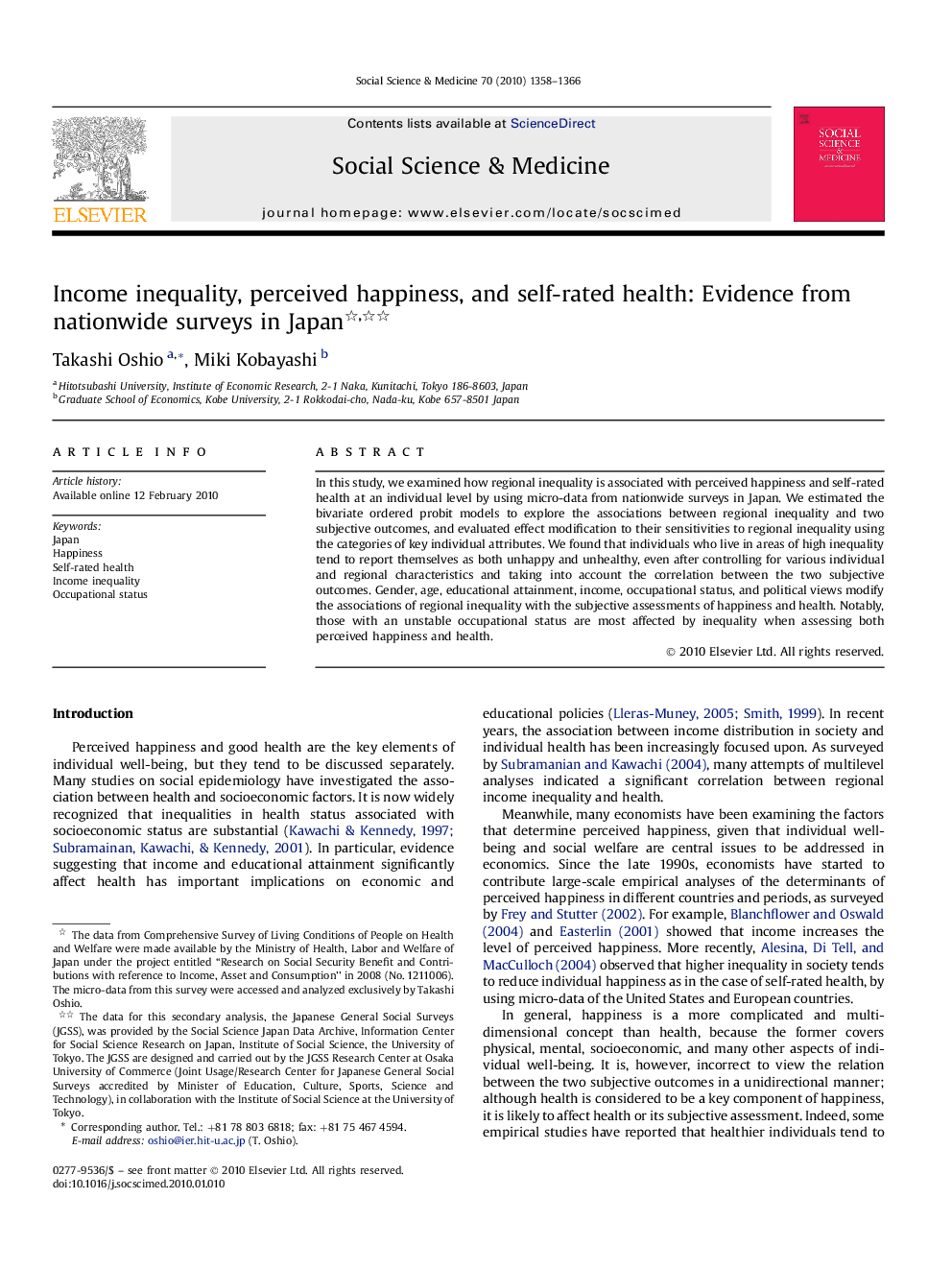| Article ID | Journal | Published Year | Pages | File Type |
|---|---|---|---|---|
| 953113 | Social Science & Medicine | 2010 | 9 Pages |
In this study, we examined how regional inequality is associated with perceived happiness and self-rated health at an individual level by using micro-data from nationwide surveys in Japan. We estimated the bivariate ordered probit models to explore the associations between regional inequality and two subjective outcomes, and evaluated effect modification to their sensitivities to regional inequality using the categories of key individual attributes. We found that individuals who live in areas of high inequality tend to report themselves as both unhappy and unhealthy, even after controlling for various individual and regional characteristics and taking into account the correlation between the two subjective outcomes. Gender, age, educational attainment, income, occupational status, and political views modify the associations of regional inequality with the subjective assessments of happiness and health. Notably, those with an unstable occupational status are most affected by inequality when assessing both perceived happiness and health.
